
*NEW AND UPDATED 2022*
PCOS is the most common condition impacting women’s menstrual cycles, and the symptoms of PCOS can be incredibly disruptive to a woman’s life. From irregular or absent periods, trouble getting pregnant, depression, to acne, hair loss, and facial hair growth, the symptoms are as varied and diverse as the women who develop PCOS.
While PCOS is mostly driven by your genetics, your diet is one of the most powerful ways you can influence your symptoms and help to keep your PCOS in check.
The PCOS Diet – What to Avoid
Honestly, if you are eating a healthy, whole foods based diet, you can eat just about anything in moderation. One of the most important treatment targets for PCOS is weight loss – losing just 3-5% of your body weight can normalize menstruation for most women. So don’t go all frat-boy and eat all the refined grains and refined sugars, but indulging once in a while is not going to derail all your progress in treating your PCOS.
I do recommend women with PCOS try to avoid alcohol, or limit it to no more than three drinks per week. The reason for this is the fact that women with PCOS have an increased risk of non-alcoholic fatty liver disease (NAFLD) and alcohol can further increase this risk. Alcohol also impacts our ability to detoxify and eliminate hormones through our liver, which can worsen symptoms associated with high androgens (acne, hair loss, facial hair growth.)
If you are suffering with acne, limiting dairy intake is also a good idea. Research has shown that dairy can worsen acne symptoms. Additionally, dairy increases the production of insulin-like growth factor (IGF) which is known to negatively impact ovulation in PCOS.
THE PCOS DIET – What To Enjoy
I want to first talk about the Big Three Recommendations when it comes to the PCOS diet – calories, macronutrients, and food quality.
Calories
For most women with PCOS, weight loss will help to restore ovulation and reduce the symptoms associated with the hormonal imbalances of PCOS. And it doesn’t have to be fast or dramatic weight loss – 3-5% loss of your total body weight is what is shown in studies to be most impactful. This can be accomplished with a caloric reduction of 300-500 calories per day.
Macronutrients
Your four main macronutirents – protein, carbohydrates, fat, and water, make up your diet and provide you with the micronutrients (vitamins and minerals) that you need to thrive. And finding a healthy balance of these macros can help you to feel great, lose weight, and treat symptoms of your PCOS.
Protein
A higher intake of protein is naturally lower in calories, slower to digest, and keeps you feeling full longer. Aim to get about 30% of your daily calories from protein. For most of us, that’s around 1.2-1.5g per kg of our body weight, or 25-35g of protein per meal. Excellent protein choices include lentils, soy and tofu, chickpeas, black beans, protein powders, eggs, fish, and poultry. There is research suggesting that including soy protein 2-4 times per week also helps to treat PCOS, so I recommend it highly for its hormone balancing benefits and high protein. Look for tofu, tempeh, edamame, and soy milk for these proteins.
Carbohydrates
The most abundant of our macronutrients, we want about 40% of our calories to come from carbohydrates. But not just any carbohydrates – we want to focus on vegetables, some fruit (1-2 per day) and whole grains (1-2 per day). You can eat unlimited non-starchy vegetables like broccoli, cauliflower, zucchini, peppers, carrots, leafy greens, tomatoes, mushrooms, asparagus, and green peas. You can also have beans and lentils as often as you want. For grains stick to oats (not quick cook), barley, quinoa, brown rice, and other whole grains. Try to limit pasta, breads, bagels, quick oats, and other refined grains as they are low in nutrients and quickly can overwhelm our daily caloric intake.
Fats
The remaining 30% of our diet should be made up of healthy fats, including nuts, seeds, avocado, olives, and healthy oils – like walnut oil, flax oil, and olive oil. Fat is the most calorie dense nutrient so it doesn’t take a lot to reach 30% of our daily calories for fat! Add a healthy source to each meal and you should be right on track.
Water
The unsung macronutrient, our bodies need water to survive and thrive. For women with PCOS I suggest 3-3.5 litres of water per day to support hormone balance, detoxification, skin health, and weight loss. Herbal teas count towards your daily water intake and can be a great way to meet your targets. Spearmint tea has been found in small studies to improve signs of abnormal facial hair growth in women with PCOS so that might be a good place to start.
Nutrient Quality
For women with PCOS weight loss may be one of our primary goals, but the quality of foods we choose matter as well. Women with PCOS are more vulnerable to compounds called AGES – advanced glycation end products. AGES are created by our bodies when fats or proteins are exposed to sugars, but more troublesome is how many of them we EAT in highly processed foods. AGES have been found to be associated with accelerated aging, persistent inflammation, and insulin resistance in women with PCOS. Yikes. Researchers have also found that women who consume the most AGES in their diets tend to have higher androgen levels, irregular periods, higher AMH are are more likely to have irregular periods or difficulty getting pregnant.
So it’s not just what foods you eat, it’s the quality of those foods too. Highly processed foods are by far the highest source of AGES – so even if you’re only eating a few cookies or crackers, they may be causing more damage than just being refined carbohydrates.
Foods that are most likely to contain AGES: fast food, crackers, cookies, chips, processed animal proteins, and vegetable oils. So skip the processed and convenience foods and opt instead for whole foods or home cooked meals whenever possible.
The PCOS Diet – What to Enjoy
-
Vegetables and fruits
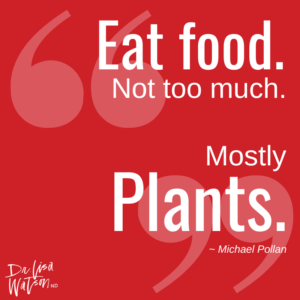
The foundation of the PCOS diet are plants. Vegetables, fruits, beans and legumes, nuts and seeds are provide the body with essential nutrients and fiber. Soluble fiber such as that found in apples, carrots, cabbage, whole grains such as oatmeal, and beans and legumes, can lower insulin production and support hormone balance in PCOS.
-
Proteins
Healthy proteins are an absolute necessity for women with PCOS. Avoid the processed proteins like chicken nuggets and mass-produced burgers and instead choose plant based proteins like soy, nuts, seeds, beans, lentils and legumes. Other healthy proteins like turkey, chicken breast, eggs and fish should also be emphasized. For most women with PCOS, a daily intake of 60-80g of protein per day is recommended.
-
Slow carbs
You do NOT need to cut all carbs to address PCOS. Nor do you need to go keto or do another dramatic diet. Be suspicious of anyone who tells you this! Carbs are essential for healthy brain activity and without them you will likely be a miserable raging bitch, and no one wants that for you.
Instead, choose high quality, unrefined carbohydrates – vegetables, fruits (two per day is a-ok), and healthy whole grains like oats, barley, quinoa, and brown rice. Cut out the pasta, pastries, cookies, white rice, and popcorn.
-
Cinnamon
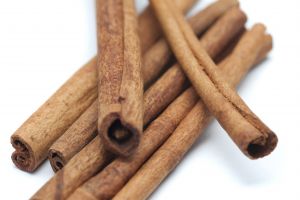 Spices are an amazing way to increase antioxidants in your diet, and cinnamon is especially useful for women with PCOS because it can help to regulate blood sugar. Sprinkle it on apples, oats or quinoa in the morning, add it to teas and use it in flavourful stews or curries.
Spices are an amazing way to increase antioxidants in your diet, and cinnamon is especially useful for women with PCOS because it can help to regulate blood sugar. Sprinkle it on apples, oats or quinoa in the morning, add it to teas and use it in flavourful stews or curries.
-
Healthy Fats
Not all fats are created equal, but we still need 30% of our daily calories to come from fat. Choose healthy fats from plants whenever possible – avocado, nuts, seeds, olives, flax, and their oils – walnut oil, flax oil, olive oil.
Try to keep dairy to a minimum, especially if you have acne. And limit the high saturated fats found in animal fat and coconut oil. Have a handful of almonds, walnuts, or olives for a snack. Throw seeds on your salads. Incorporating fats can be fun and add great flavour and texture to your meals.
The research on nutrition and diet has come a LONG way since I first published this article in 2016. Now in 2022 the recommendations haven’t changed dramatically – eat whole foods with an emphasis on healthy proteins, lots of plants, and healthy fats. As always, I hope you will embrace the PCOS diet – your diet is the most POWERFUL influence you have over your health. If you need more support or guidance, reach out. Let’s talk. I’m here for you.
Disclaimer
The advice provided in this article is for informational purposes only. It is meant to augment and not replace consultation with a licensed health care provider. Consultation with a Naturopathic Doctor or other primary care provider is recommended for anyone suffering from a health problem.
Select References
Asemi, Z., & Esmaillzadeh, A. (2015). DASH diet, insulin resistance, and serum hs-CRP in polycystic ovary syndrome: A randomized controlled clinical trial. Hormone and Metabolic Research, 47(3), 232–238. https://doi.org/10.1055/s-0034-1376990
Azadi-Yazdi, M., Karimi-Zarchi, M., Salehi-Abargouei, A., Fallahzadeh, H., & Nadjarzadeh, A. (2017). Effects of Dietary Approach to Stop Hypertension diet on androgens, antioxidant status and body composition in overweight and obese women with polycystic ovary syndrome: A randomised controlled trial. Journal of Human Nutrition and Dietetics: The Official Journal of the British Dietetic Association, 30(3), 275–283. https://doi.org/10.1111/jhn.12433
Barrea, L., Arnone, A., Annunziata, G., Muscogiuri, G., Laudisio, D., Salzano, C., Pugliese, G., Colao, A., & Savastano, S. (2019). Adherence to the Mediterranean Diet, Dietary Patterns and Body Composition in Women with Polycystic Ovary Syndrome (PCOS). Nutrients, 11(10). https://doi.org/10.3390/nu11102278
Cui, N., Wang, H., Wang, W., Zhang, J., Xu, Y., Jiang, L., Yang, A., & Hao, G. (2016). Impact of Body Mass Index on Outcomes of In Vitro Fertilization/Intracytoplasmic Sperm Injection Among Polycystic Ovarian Syndrome Patients. Cellular Physiology and Biochemistry: International Journal of Experimental Cellular Physiology, Biochemistry, and Pharmacology, 39(5), 1723–1734. https://doi.org/10.1159/000447873
Gill, V., Kumar, V., Singh, K., Kumar, A., & Kim, J.-J. (2019). Advanced Glycation End Products (AGEs) May Be a Striking Link Between Modern Diet and Health. Biomolecules, 9(12). https://doi.org/10.3390/biom9120888
Gower, B. A., Chandler-Laney, P. C., Ovalle, F., Goree, L. L., Azziz, R., Desmond, R. A., Granger, W. M., Goss, A. M., & Bates, G. W. (2013). Favourable metabolic effects of a eucaloric lower-carbohydrate diet in women with PCOS. Clinical Endocrinology, 79(4), 550–557. https://doi.org/10.1111/cen.12175
Grant, P. (2010). Spearmint herbal tea has significant anti-androgen effects in polycystic ovarian syndrome. A randomized controlled trial. Phytotherapy Research: PTR, 24(2), 186–188. https://doi.org/10.1002/ptr.2900
Gugliucci, A., Kotani, K., Taing, J., Matsuoka, Y., Sano, Y., Yoshimura, M., Egawa, K., Horikawa, C., Kitagawa, Y., Kiso, Y., Kimura, S., & Sakane, N. (2009). Short-term low calorie diet intervention reduces serum advanced glycation end products in healthy overweight or obese adults. Annals of Nutrition & Metabolism, 54(3), 197–201. https://doi.org/10.1159/000217817
Hoover, S. E., Gower, B. A., Cedillo, Y., Chandler-Laney, P. C., Deemer, S., & Goss, A. M. (2021). Changes in Ghrelin and Glucagon following a Low Glycemic Load Diet in Women with PCOS. The Journal of Clinical Endocrinology and Metabolism. https://doi.org/10.1210/clinem/dgab028
Huijgen, N. A., Laven, J. S. E., Labee, C. T., Louwers, Y. V., Willemsen, S. P., & SteegersTheunissen, R. P. M. (2015). Are Dieting and Dietary Inadequacy a Second Hit in the Association with Polycystic Ovary Syndrome Severity? PloS One, 10(11), e0142772. https://doi.org/10.1371/journal.pone.0142772
Jakubowicz, D., Barnea, M., Wainstein, J., & Froy, O. (2013). Effects of caloric intake timing on insulin resistance and hyperandrogenism in lean women with polycystic ovary syndrome. Clinical Science (London, England: 1979), 125(9), 423–432. https://doi.org/10.1042/CS20130071
Karamali, M., Kashanian, M., Alaeinasab, S., & Asemi, Z. (2018). The effect of dietary soy intake on weight loss, glycaemic control, lipid profiles and biomarkers of inflammation and oxidative stress in women with polycystic ovary syndrome: A randomised clinical trial. Journal of Human Nutrition and Dietetics: The Official Journal of the British Dietetic Association. https://doi.org/10.1111/jhn.12545
Lim, S. (2020). Lifestyle changes in women with polycystic ovary syndrome. – PubMed—NCBI. https://www.ncbi.nlm.nih.gov/pubmed/30921477
Mark, A. B., Poulsen, M. W., Andersen, S., Andersen, J. M., Bak, M. J., Ritz, C., Holst, J. J., Nielsen, J., de Courten, B., Dragsted, L. O., & Bügel, S. G. (2014). Consumption of a diet low in advanced glycation end products for 4 weeks improves insulin sensitivity in overweight women. Diabetes Care, 37(1), 88–95. https://doi.org/10.2337/dc13-0842
Marsh, K. A., Steinbeck, K. S., Atkinson, F. S., Petocz, P., & Brand-Miller, J. C. (2010). Effect of a low glycemic index compared with a conventional healthy diet on polycystic ovary syndrome. The American Journal of Clinical Nutrition, 92(1), 83–92. https://doi.org/10.3945/ajcn.2010.29261
Mehrabani, H. H., Salehpour, S., Amiri, Z., Farahani, S. J., Meyer, B. J., & Tahbaz, F. (2012). Beneficial effects of a high-protein, low-glycemic-load hypocaloric diet in overweight and obese women with polycystic ovary syndrome: A randomized controlled intervention study. Journal of the American College of Nutrition, 31(2), 117–125.
Mirabelli, M., Chiefari, E., Arcidiacono, B., Corigliano, D. M., Brunetti, F. S., Maggisano, V., Russo, D., Foti, D. P., & Brunetti, A. (2020). Mediterranean Diet Nutrients to Turn the Tide against Insulin Resistance and Related Diseases. Nutrients, 12(4). https://doi.org/10.3390/nu12041066
Moran, L. J., Noakes, M., Clifton, P. M., Tomlinson, L., Galletly, C., & Norman, R. J. (2003). Dietary composition in restoring reproductive and metabolic physiology in overweight women with polycystic ovary syndrome. The Journal of Clinical Endocrinology and Metabolism, 88(2), 812–819. https://doi.org/10.1210/jc.2002-020815
Phy, J. L., Pohlmeier, A. M., Cooper, J. A., Watkins, P., Spallholz, J., Harris, K. S., Berenson, A. B., & Boylan, M. (2015). Low Starch/Low Dairy Diet Results in Successful Treatment of Obesity and Co-Morbidities Linked to Polycystic Ovary Syndrome (PCOS). Journal of Obesity & Weight Loss Therapy, 5(2). https://doi.org/10.4172/2165-7904.1000259
Sørensen, L. B., Søe, M., Halkier, K. H., Stigsby, B., & Astrup, A. (2012). Effects of increased dietary protein-to-carbohydrate ratios in women with polycystic ovary syndrome. The American Journal of Clinical Nutrition, 95(1), 39–48. https://doi.org/10.3945/ajcn.111.020693
Tantalaki, E., Piperi, C., Livadas, S., Kollias, A., Adamopoulos, C., Koulouri, A., Christakou, C., & Diamanti-Kandarakis, E. (2014). Impact of dietary modification of advanced glycation end products (AGEs) on the hormonal and metabolic profile of women with polycystic ovary syndrome (PCOS). Hormones (Athens, Greece), 13(1), 65–73.
Thomson, R. L., Buckley, J. D., Moran, L. J., Noakes, M., Clifton, P. M., Norman, R. J., & Brinkworth, G. D. (2009). The effect of weight loss on anti-Müllerian hormone levels in overweight and obese women with polycystic ovary syndrome and reproductive impairment. Human Reproduction (Oxford, England), 24(8), 1976–1981. https://doi.org/10.1093/humrep/dep101
Yahay, M., Heidari, Z., Allameh, Z., & Amani, R. (2021). The effects of canola and olive oils consumption compared to sunflower oil, on lipid profile and hepatic steatosis in women with polycystic ovarian syndrome: A randomized controlled trial. Lipids in Health and Disease, 20(1), 7. https://doi.org/10.1186/s12944-021-01433-9


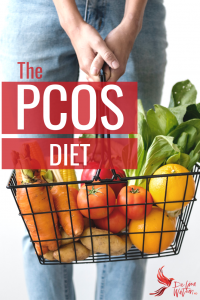



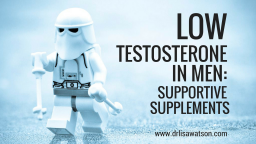
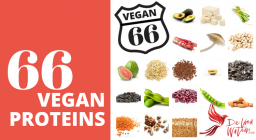


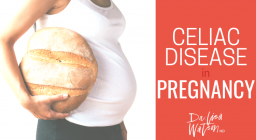
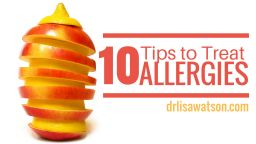




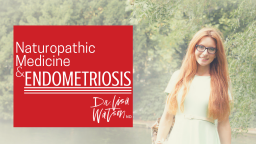
Hi. I have PCOS and am a vegan. I am also 59 years old. I had my ovaries removed a few months ago because tumors were found. Fortunately, no ovarian cancer; however, a small cancer was found in my uterus, so I had to have a hysterectomy (two months after the ovary removal…long story). Anyway, I still have metabolic syndrome–craving sweets, rounded stomach, mood swings/depression, hair loss (with iron deficiency now being treated),…etc. Will this diet still help me? Can I get around the fish requirement by substituting another (vegan) food? Also, is it your opinion that veganism and PCOS just aren’t compatible? I would like to remain vegan, but, if my health hangs in the balance, I guess I could choke-down a small piece of fish every so often 🙁
Thanks for any advice you can lend me.
I absolutely think that women can be vegan and still manage their PCOS! It really is a matter of making sure that you are emphasizing proteins and fats over carbohydrates. While all vegan foods contain some carbs, focusing on eating more nuts and seeds and limiting grains can go a long way towards balancing your blood sugar and treating PCOS. Start by reading the 66 Sources of Vegan Proteins and aiming for 60-70g per day! http://drlisawatson.com/66-vegan-proteins
Hi
Thank you for the informative and beneficial articles. Avoiding dairy, does this also include yogurt and kefir?
Yes, unfortunately, for the management of PCOS we do recommend avoiding all forms of dairy. For fermented foods you could consider fermented vegetables like kimchi or sauerkraut, or even a nice coconut yogurt or kefir! Delicious, and dairy free. ~Dr. Lisa